13 Best Civilization Games to Build Your Empire in 2025
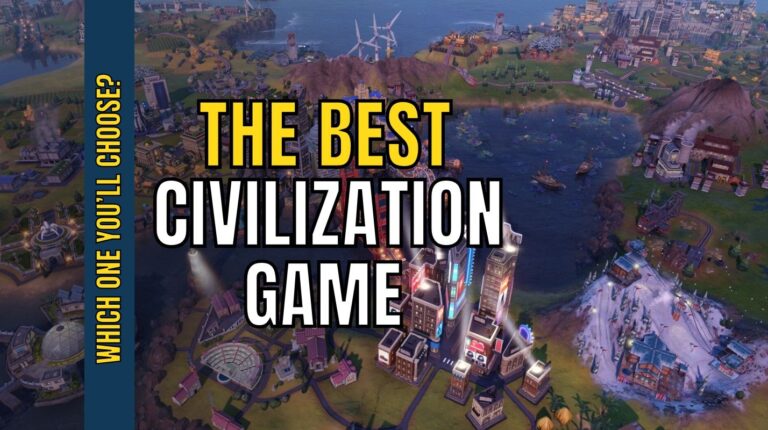
Sid Meier’s Civilization series has been striding for three decades now. A gaming franchise that cemented its place among the greatest strategy games of all time! They had their share of ups and downs, but every Civilization game became a ginormous hit in the genre! Thus, many, including myself, wonder which title deserves the crown as the best Civilization game.
Civilization games are well-oriented turn-based strategy games. These games allow players to lead a complete civilization from the Stone Age to the current period. You can uncover unexplored territories, form alliances, create economies, and wage calculated conflicts. With each title, the franchise added creative mechanics and deeper playing. Thereby confirming its position as one of the most beloved series in gaming history.
Praise for Civilization games comes from their complex world building, tactical combat practices, and careful balancing between diplomacy and dominance. The series has infinite replayability whether you’re negotiating the Renaissance or using nuclear power in the modern era.
In this comprehensive guide, we’ll rank the best Civilization games for both the novice and the master! We’ll also discuss each title’s uniqueness, strengths, and weaknesses based on my experience and community insights. Don’t forget! Eneba.com has excellent deals on Civilization titles to help you build the most glorious empire! Let’s explore this ultimate series ranking to determine which game reigns supreme!
Jump to:
Our Top Picks for Civilization Games
This guide isn’t just another ranking— just as the Civ series itself is a gem among TBS adventures, I made it into a true adventure into the very making of each Civ game. We will address everything from fandom insights and unforgettable events to game mechanics and prideful leaders. This list is your go-to guide to finding your ideal Civ game, whether you’re an esteemed strategist or a complete beginner!
- Civilization V – build an empire through history.
- Civilization VI – lead a civilization to victory.
- Civilization IV – expand your empire through diplomacy and war.
- Sid Meier’s Alpha Centauri – colonize an alien planet.
- Civilization III – guide a civilization through history.
This list is just the peak of the iceberg. Keep reading to see our full list of the best Civilization titles.
13 Best Civilization Games of All Time
I have added reference tables covering all Civ games of the franchise (including six main games and other Civ’s), their release years, platforms, and links to Eneba, where you can buy the games without delay. Ready to decide which era of strategy gaming you want to rule? Let’s rank the best Civilization games from the highest score to the not-so-high!
1. Civilization V
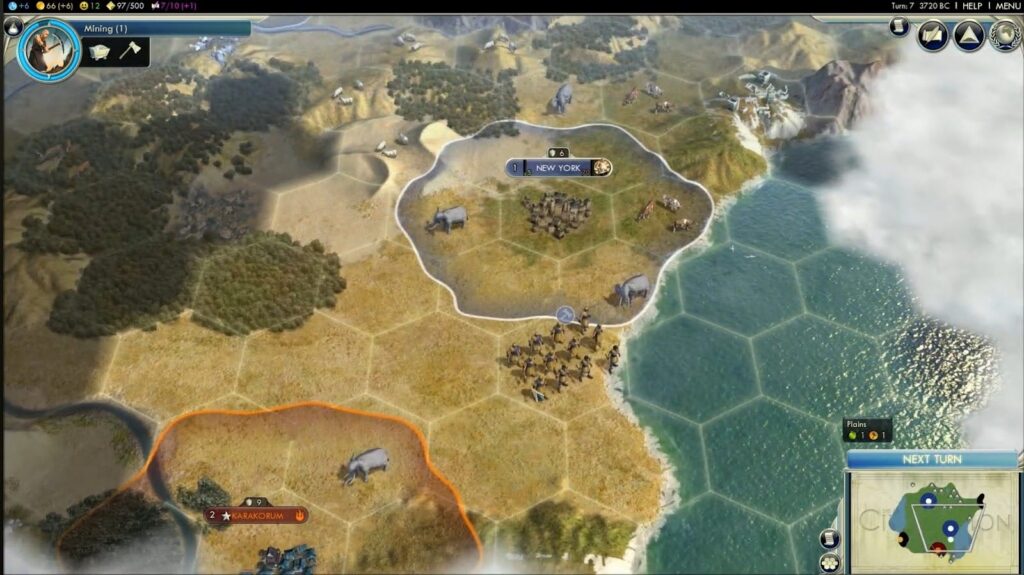
| Our Score | Platforms | Avg Game Time | Release Year | Notable Expansions |
|---|---|---|---|---|
| 9.5/10 | PC, Mac OS, Linux | ~100-200 hours | 2010 | Gods & Kings, Brave New World |
Civilization V revolutionized the series with a hex grid for dynamic terrain and strategic possibilities. It introduced “Social Policies,” allowing for customizable civilization growth and ideologies. New diplomatic options and simplified combat made it easier while retaining deep strategy.
The key features and innovations included:
- Addition of hexagonal grid.
- Implementing Social Policies.
- Addition of City-States.
- Improved fighting mechanics.
Praised for its fresh approach, it is an excellent pick for newcomers, though some fans missed older titles’ depth. It’s the best game of the entire series.
I recommend it to new players or anyone who enjoys long-term planning and diplomatic strategies.
2. Civilization VI
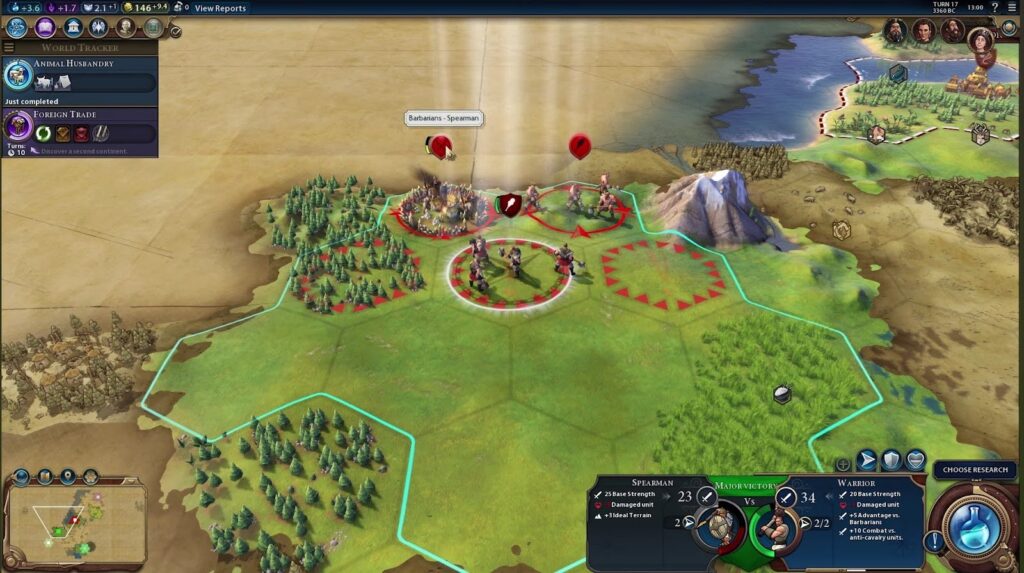
| Our Score | Platforms | Avg Game Time | Release Year | Notable Expansions |
|---|---|---|---|---|
| 9.3/10 | PC, Mac OS, Linux, Nintendo Switch, PS4, Xbox One | ~80-150 hours | 2016 | Rise and Fall, Dark Age, Golden Age |
With its “District” concept offering specialized city sections for science, culture, and military, Civ VI exceeds the limits of empire-building. City planning has been improved, providing dynamic maps beyond traditional boundaries. The addition of unique leaders with distinct skills provides new playthroughs.
The critical characteristics of Civ VI are:
- There is a variety of new leaders to choose from.
- Addition of the “District” concept providing specialized city development
- City expansion beyond conventional boundaries.
- Improvements in AI further escalated game competitiveness.
Although Civ VI revived the franchise with its complexity and inventiveness, its AI diplomacy drew certain criticism. Thus, it’s the second best game of the entire series.
I’d recommend it to gamers who like diplomacy, expansive city planning, and competitive tactical gaming.
3. Civilization IV
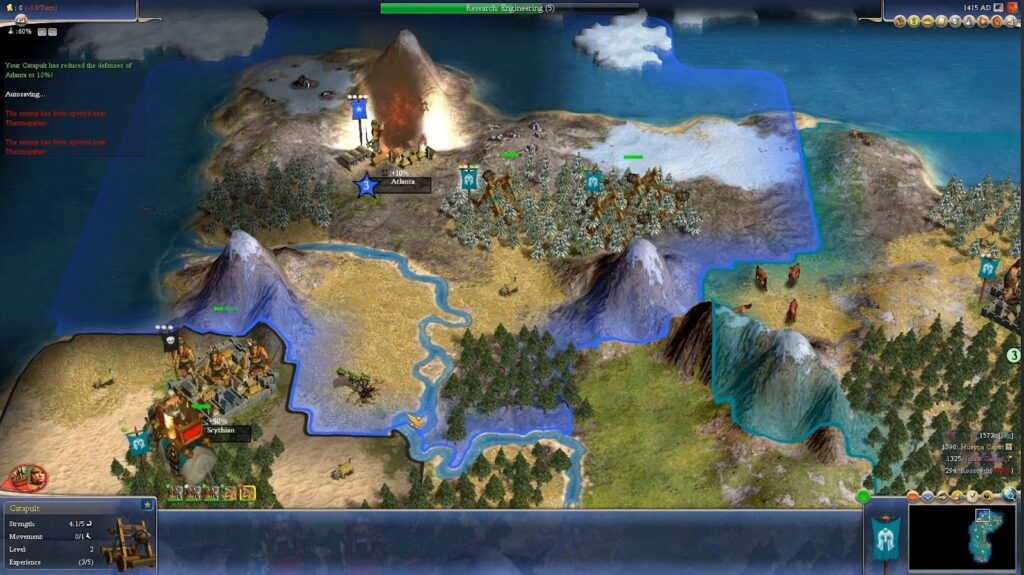
| Our Score | Platforms | Avg Game Time | Release Year | Notable Expansions |
|---|---|---|---|---|
| 9/10 | PC, Mac OS, Linux | ~60-120 hours | 2005 | Warlords |
Civilization IV revived the series with a fresh 3D engine and crucial elements like “Civics” (customizable government systems) and the inclusion of religion as a fundamental factor. Players can found religions, spread them, and benefit from associated bonuses.
Some notable features of Civ IV include:
- The insertion of “Great People”.
- Introduction of 3D graphics.
- Employment of strategic levels via civics and religion.
Civ IV is often considered one of the best series for its complexity, striking visuals, and intricate mechanics.
It’s an excellent addition for enthusiasts of complex strategy.
4. Sid Meier’s Alpha Centauri
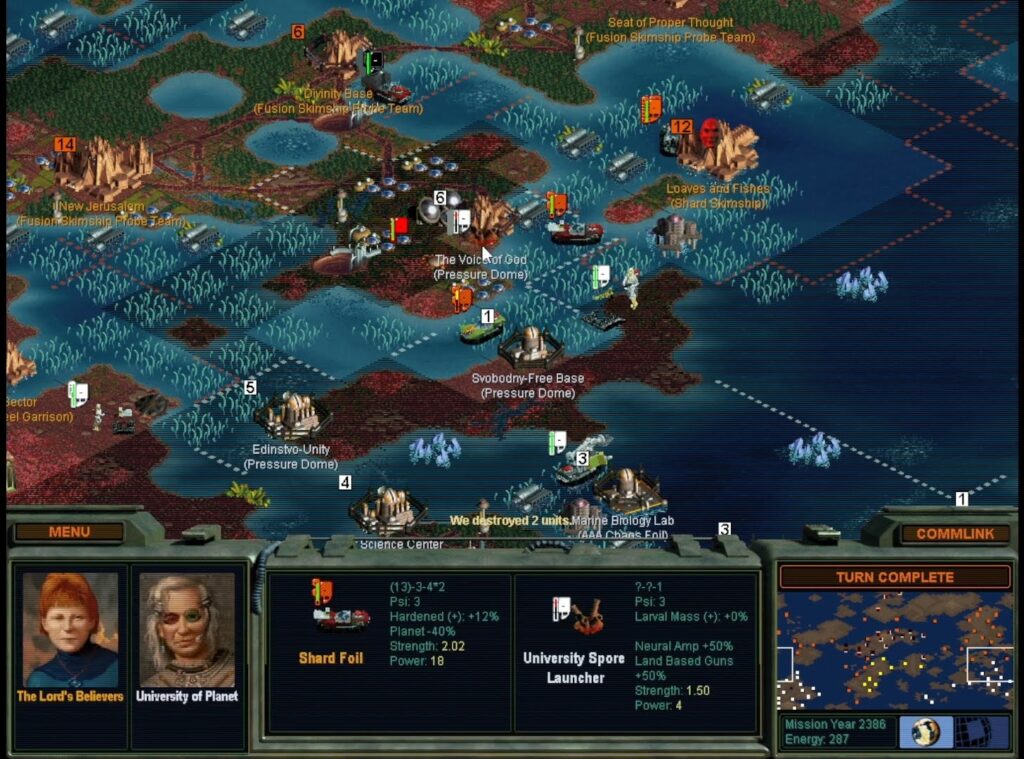
| Our Score | Platforms | Avg Game Time | Release Year | Notable Expansions |
|---|---|---|---|---|
| 8.8/10 | PC, MacOS | ~50-100 hours | 1999 | Planetary |
Set in space where participants build a new planet, Sid Meier’s Alpha Centauri is a spiritual outgrowth of Civilization franchise. Players explore philosophical and scientific ideologies while choosing different factions with distinct technology and ideas.
The critical elements in Alpha Centauri include:
- Separate factions.
- A “Social Engineering” mechanism to influence morality and administration
- A sophisticated tech tree producing future troops.
Often eclipsed by Civ, Alpha Centauri is regarded as one of the finest strategy games for its sophisticated yet intellectually exciting gameplay.
I’d recommend it to anyone interested in deep-strategy games and research.
5. Civilization III
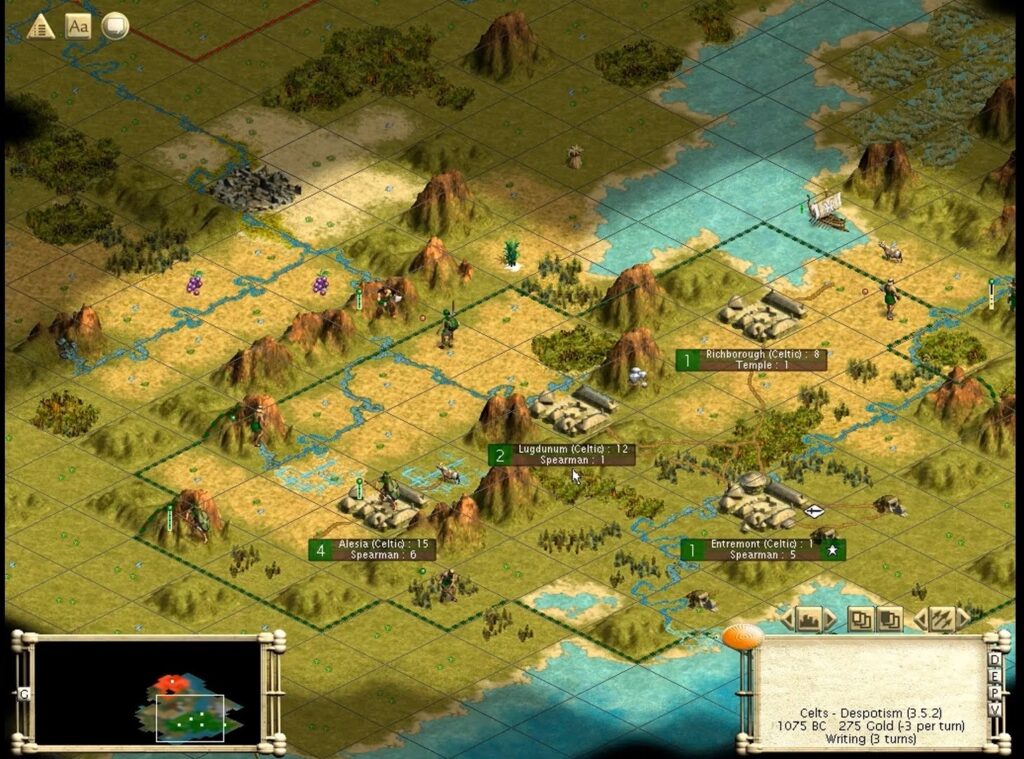
| Our Score | Platforms | Avg Game Time | Release Year | Notable Expansions |
|---|---|---|---|---|
| 8.5/10 | PC, MacOS | ~60-80 hours | 2001 | None |
Emphasizing culture and diplomacy, Civ III raised the franchise to unprecedented heights. Peaceful growth was made possible by introducing it as a tool, and military dominance was replaced with another choice—soft power!
The critical innovations included:
- A redesigned diplomatic system.
- Crucial strategic resources.
- Cultural boundaries.
Although some felt the AI could be overly aggressive, Civ III was praised for its strategic depth and replayability. Its harmony of accessibility and intricacy still makes it a fan favorite.
It’s a good choice for gamers who like diplomatic and cultural gaming.
6. Civilization II
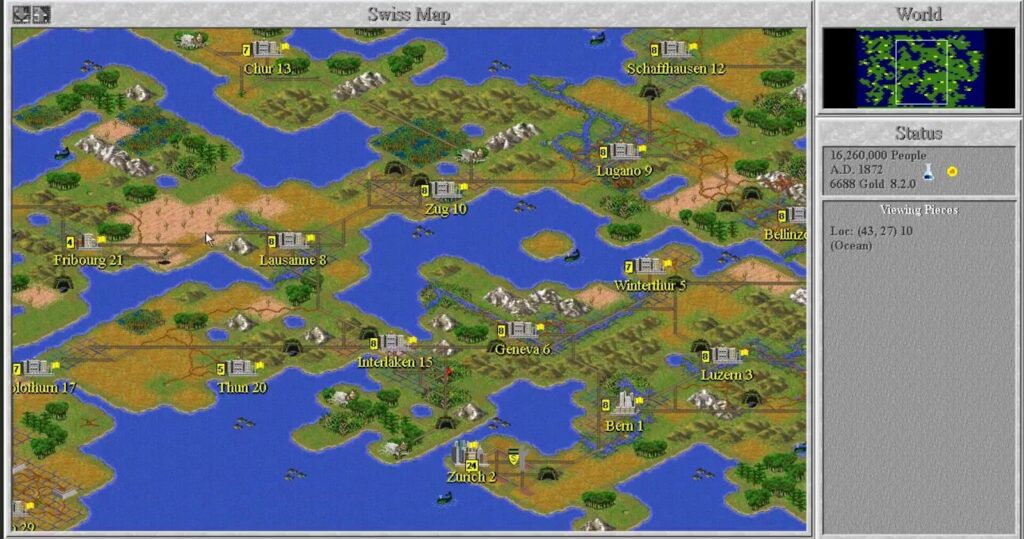
| Our Score | Platforms | Avg Game Time | Release Year | Notable Expansions |
|---|---|---|---|---|
| 7/10 | PC, PlayStation, Mac OS | ~50-60 hours | 1996 | None |
Expanding on its predecessor with fresh elements like city improvements and thorough combat, Civilization II represented a significant change for the entire series. Its isometric designs and square grid improved gameplay, making it popular.
The key developments were:
- City-specific enhancements.
- A more advanced combat system.
- Interesting diplomacy via alliances.
Celebrated for strategic depth and addictive gameplay, Civilization II took several “Game of the Year” honors. Thus, it was well-received by the fans. It’s an OG pick for veterans and even newcomers intrigued about the series’ background.
7. Civilization Revolution
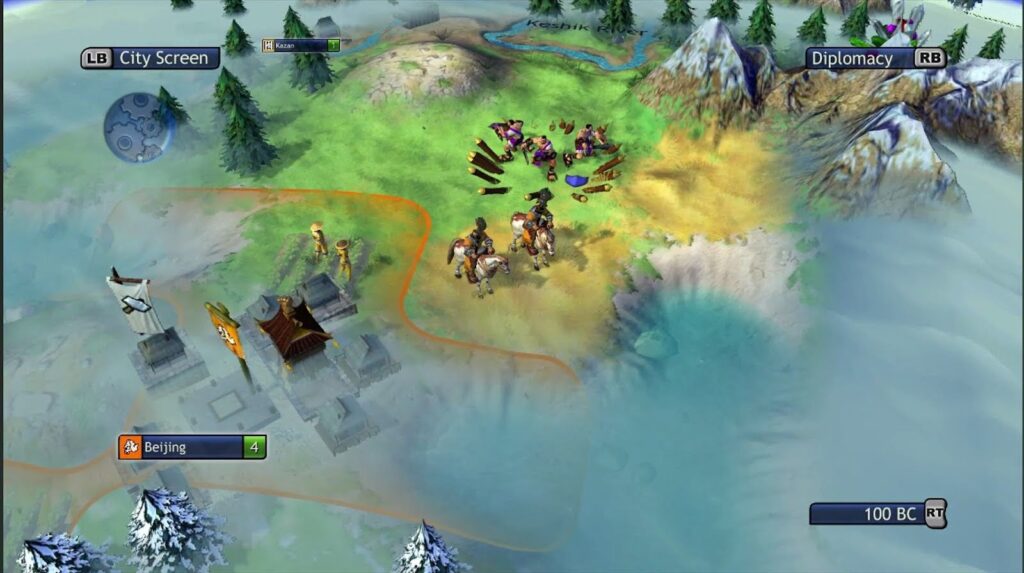
| Our Score | Platforms | Avg Game Time | Release Year | Notable Expansions |
|---|---|---|---|---|
| 6.5/10 | Xbox 360, PlayStation 3, DS, iOS | ~30-40 hours | 2008 | None |
Reimagining the franchise for consoles, the Civilization Revolution simplified gameplay for casual gamers. Designed by Sid Meier, it retained the foundation of the genre while adjusting for touch controls and shorter gaming sessions.
The notable vital elements include:
- Streamlined mechanics for faster gameplay.
- Unique leader abilities that encouraged diverse strategies.
- Eye-catching visuals with a cartoony style.
Although it was commended for accessibility, it was criticized for missing complexity compared to PC games. A major series launch brought strategy games to a wider audience. It’s a must-have for casual players looking for a fast-paced but lighter version of the original game.
8. Sid Meier’s Civilization
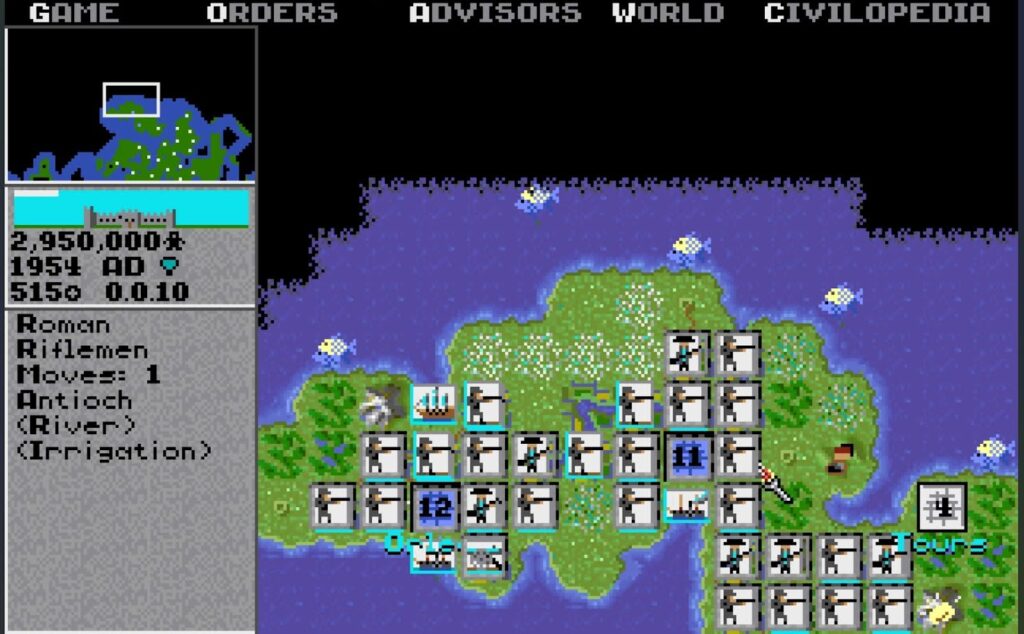
| Our Score | Platforms | Avg Game Time | Release Year | Notable Expansions |
|---|---|---|---|---|
| 6/10 | MS-DOS, Amiga, Macintosh | ~40-50 hours | 1991 | None |
From the Stone Age to the Space Age, the Sid Meier original game, Civilization—the base game that launched it all—introduced players to empire-building. Combining diplomacy, resource management, and exploration, it set the stage for a great series.
The key innovations were characteristics including:
- One-of-a-kind tech tree.
- City-building concept.
- Turn-based tactics.
Released in 1991, its depth and repeatability won it praise. It is a pillar of gaming history, even if it is dated today. Players fascinated by the beginnings of strategic games should try the base game.
9. Civilization: Beyond Earth
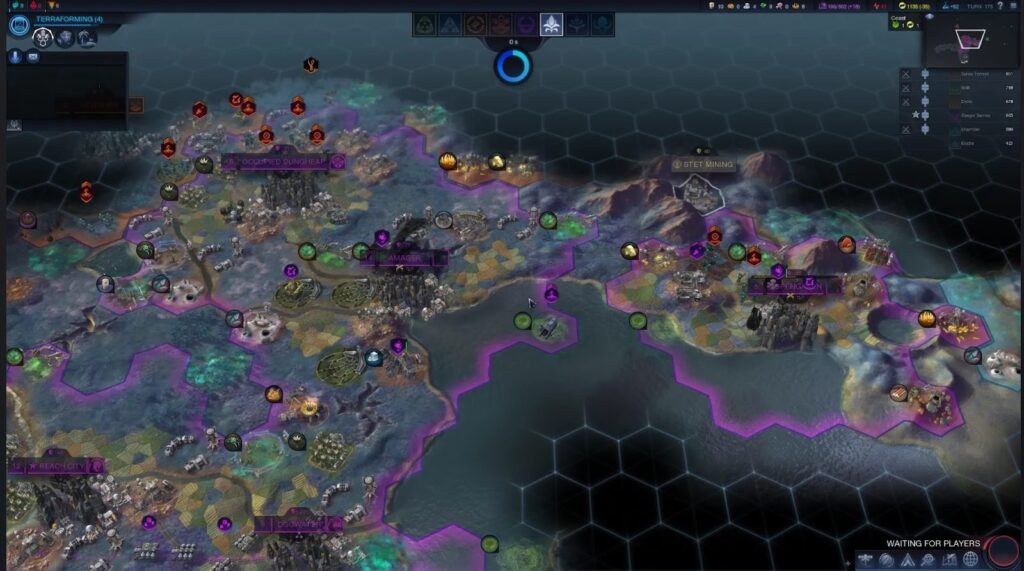
| Our Score | Platforms | Avg Game Time | Release Year | Notable Expansions |
|---|---|---|---|---|
| 5.5/10 | PC, Mac, Linux | ~30-50 hours | 2014 | Rising Tide |
Beyond Earth reimagines the Civilization franchise with a sci-fi twist. Instead of Earth, players populate exotic planets and mold mankind’s destiny in space.
The key innovations include:
- A non-linear tech network.
- Presence of alien life instead of barbarians.
- Affinity mechanics (Harmony, Supremacy, and Purity).
Though it’s an ambitious concept, the game got mixed reviews. It was praised for its inventiveness. But heavily criticized for repetitive gameplay and lack of complexity compared to Civilization V and other Civs.
It’s perfect for players who enjoy futuristic themes. Beyond Earth presents a new interpretation of classic Civilization gameplay.
10. Civilization Revolution 2
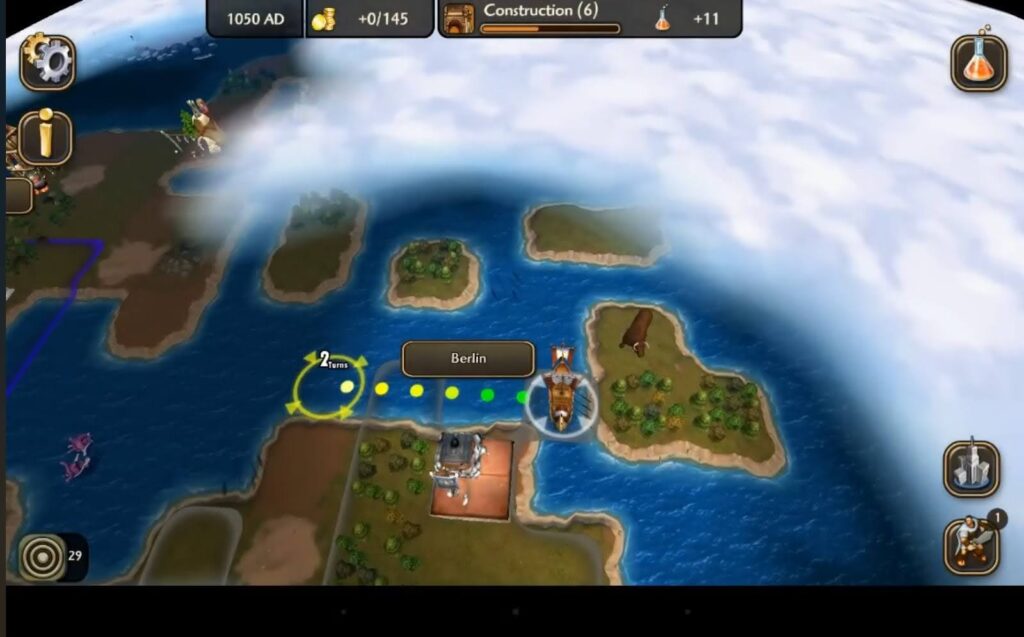
| Our Score | Platforms | Avg Game Time | Release Year | Notable Expansions |
|---|---|---|---|---|
| 5.5/10 | Android, iOS | ~20-30 hours | 2014 | None |
Offering a laid-back approach to the venerable Civilization franchise, Civilization Revolution 2 offers mobile simplified and fast-paced gameplay. It has leaders like John F. Kennedy, fresh units like Aircraft Carriers, and touch-optimized controls.
Key features and innovations in the game were:
- Simplified gaming mechanics and friendly UI.
- New leaders including John F. Kennedy and Shaka Zulu.
- Improved military units and strategic depth.
- Addition of cultural and other victory types.
Most people loved its mobility and accessibility even if it had mixed opinions, as it felt like a sequel to Civ Revolution instead. Civilization Revolution 2 is ideal for casual mobile players looking for an essential Civilization experience.
11. CivCity: Rome
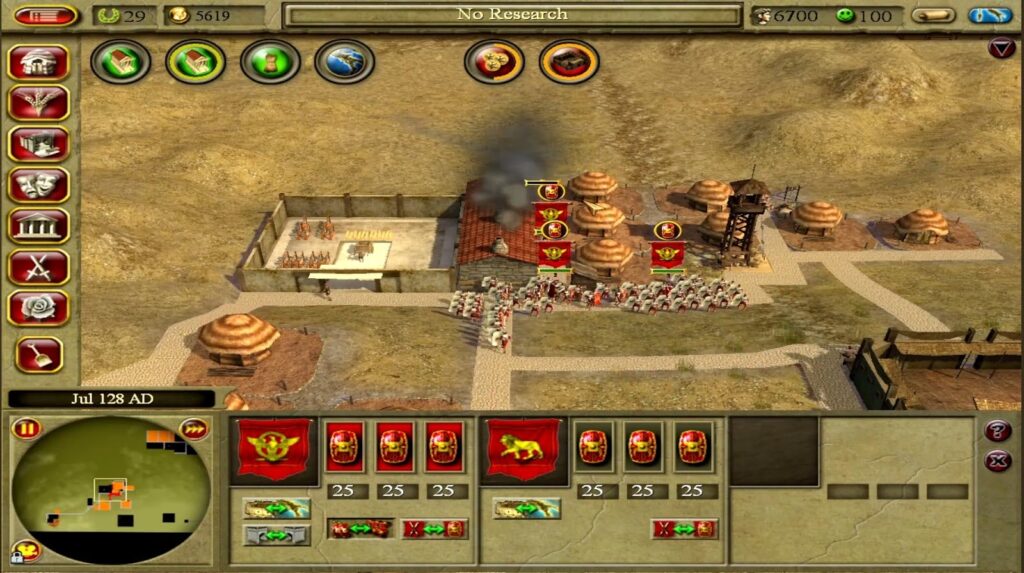
| Our Score | Platforms | Avg Game Time | Release Year | Notable Expansions |
|---|---|---|---|---|
| 5/10 | PC | ~20-30 hours | 2006 | None |
Inspired by the Civilization series, CivCity: Rome is a game where players oversee historic Roman cities. You balance resources, appease people, and build infrastructure instead of running an empire.
The key aspects include:
- Roman-themed objectives.
- Complex city design and resource systems.
- Merging elements of Civilization like a famous builder, Caesar III.
As for the fan base, reviews of the game were divided. There were compliments on its gameplay but criticism of its lack of depth in the Empire-building of Civilization.
In my opinion, it’s worthwhile for players interested in Roman urban design and for fans of city simulations.
12. CivNet
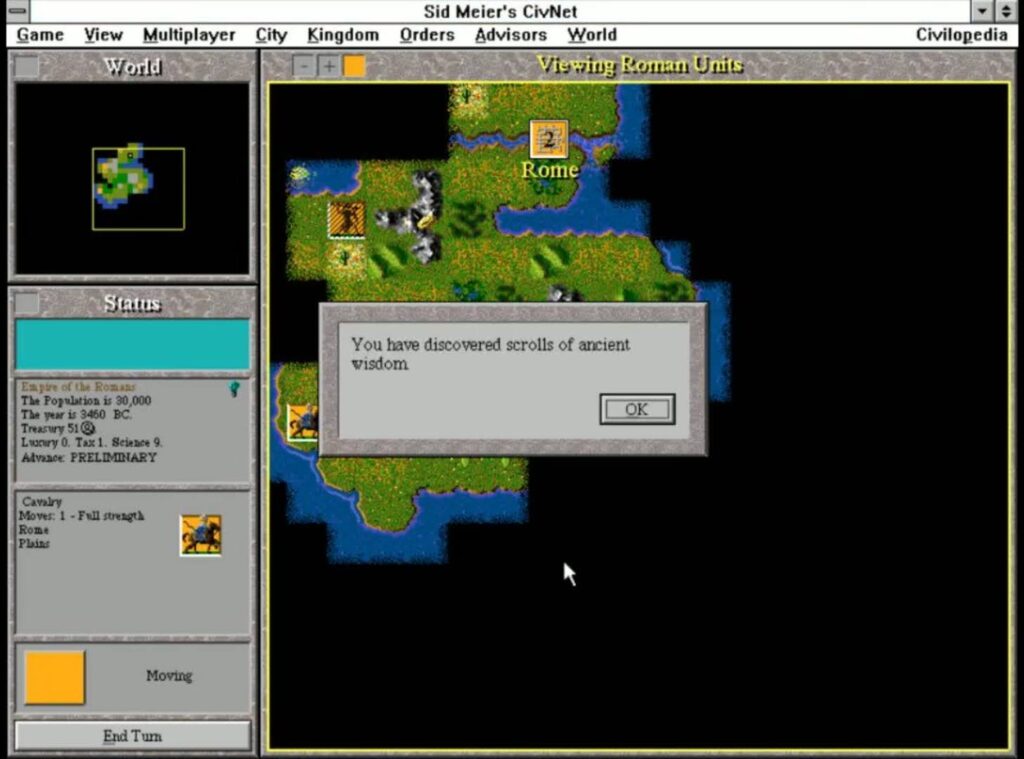
| Our Score | Platforms | Avg Game Time | Release Year | Notable Expansions |
|---|---|---|---|---|
| 4/10 | PC (MS-DOS) | ~20-30 hours | 1995 | None |
CivNet, a multiplayer-focused recreation of the original Civilization, includes LAN and online play. It harbors competitive and cooperative modes while keeping fundamental principles such as constructing, exploring, and conquering.
CivNet’s key features include:
- It’s the first multiplayer Civ game with LAN and online play.
- Updated UI for better networking.
- Co-op and competitive gaming modes.
Though ahead of its time, technical restrictions made multiplayer elements awkward. Many others and I found it redundant since the core gameplay is the same. I recommend it to hardcore Civilization fans who want to experience the beginning of all that Civ multiplayer era.
13. Sid Meier’s Colonization
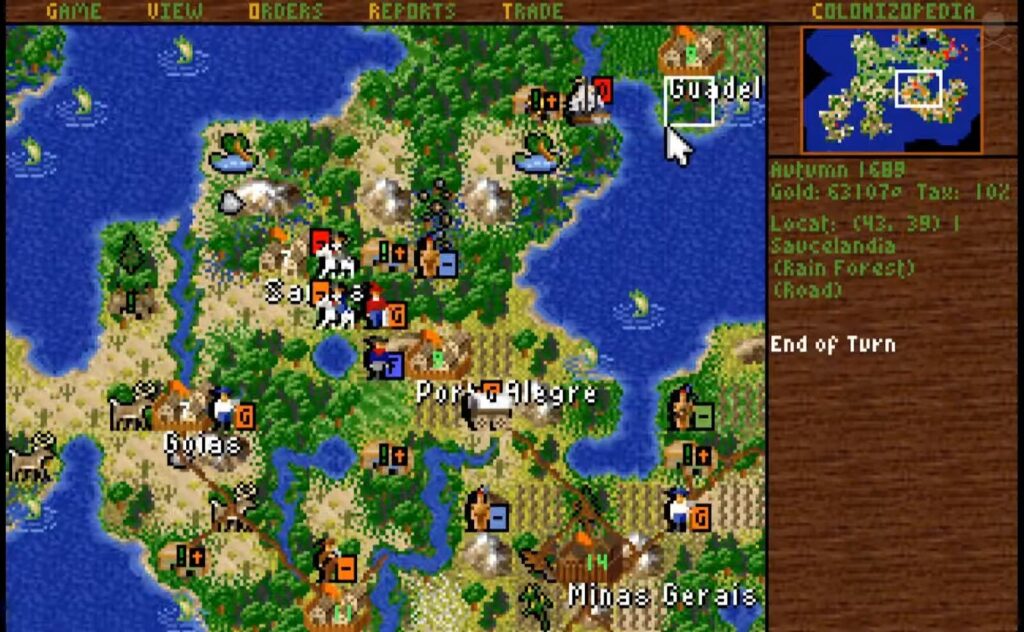
| Our Score | Platforms | Avg Game Time | Release Year | Notable Expansions |
|---|---|---|---|---|
| 4/10 | PC, Mac, Amiga | ~30-50 hours | 1994 | None |
A stand-alone spin-off of Civilization (1991) is Colonization. It is entirely focused on the period of European colonization in the New World. Players travel, trade, and declare independence from their mother country when choosing a European power.
Some key features of the game, in my view, are:
- Introduction of resource trading and colony-building mechanics.
- Greater focus on the dynamics of managing colonies, including native diplomacy and European rivalries.
I know Colonization was ambitious for its time, it often felt restrictive compared to the mainline series. Its unique focus received much praise, but the repetitive gameplay loop is off-putting.
This game is a good match for anyone who likes niche historical strategy games or those interested in the colonial period.
Our Criteria for Ranking the Civilization Series
Ranking the Civ games isn’t simple. Each game possesses its positives and unique appeal to players. We looked at key factors that affect overall gameplay for a fair ranking. These are:
- Gameplay Depth and Mechanics: It was our top priority. Our analysis tested how each title balances strategy, resource management, and innovation. Games possessing jaw-dropping mechanics scored higher and vice versa.
- AI and Diplomacy Systems: A strong AI creates challenging and realistic gameplay, while robust diplomacy adds layers to strategy. Civs with poor AI or limited diplomacy ranked lower.
- Graphics and User Interface: Titles with intuitive layouts and immersive visuals stand out. A clean interface ensures smooth gameplay, especially for new players.
- Replayability and Longevity: The best Civs keep players returning for more, thanks to diverse scenarios and expansions.
- Fan Reception and Critical Acclaim: The fans seldom lie, and their critiques are always worth listening to. It reflects a game’s lasting impact on the community.
These criteria ensured a thorough and balanced ranking that highlights what truly makes each Civilization game unforgettable.
The Evolution of Civilization: From Pixels to Empires
A one-of-a-kind game came into being in 1991, known as Civilization. It was the first ever turn-based strategy game designed by Sid Meier, the creator of the Civ games. The game observed the classic pixelated map, basic mechanics, and simplistic AI. Yet, its “one more turn” gameplay loop set a standard for strategy games. For the first time, entire cities, armies, and a plethora of tech were in players’ hands. Sid Meier’s first game brought an iconic formula that made history.
Civ games continued as a series, increasing their complexity. Civilization II (1996) presented an expanded tech tree, isometric graphics, and advanced diplomacy. It was even nominated for the Game of Year Awards.
The next Civ game was Civilization III (2001), which included more mechanics, cultures, and borders. The mechanics changed the game feel entirely, giving a new perspective on territorial control.
What blew the horses was the jump towards Civilization IV (2005). That’s the first time a game from Sid Meier’s Civilization series got a 3D makeover. Moreover, religion was introduced in it, allowing players to construct an ideological landscape.
Then came Civilization V (2010), overhauling combat with a hex grid. It consists of extra layers by removing unit stacking. Civ V sold over 8 million copies, proving its overwhelming success.
With Civilization VI (2016), the entire series redefined city-building. Districts strategically deepened cities over tiles. Regular updates and expansions maintained the game’s popularity. Today, Civilization leads strategy gaming by fusing contemporary invention with historical context.
Strategic Innovations Across the Civilization Series
In my view, notable Civilization titles introducing groundbreaking strategic innovations are Civ IV, Civ V, and Civ VI. But why?
Let’s break down the first game, Civilization IV. It’s that Civ title in which Religion was introduced that impacted gameplay significantly. This feature allowed players to found and spread religions, adding extra layers of complexity to diplomacy and internal management. Choosing or refraining from a particular religion could cause conflicts or alliances.
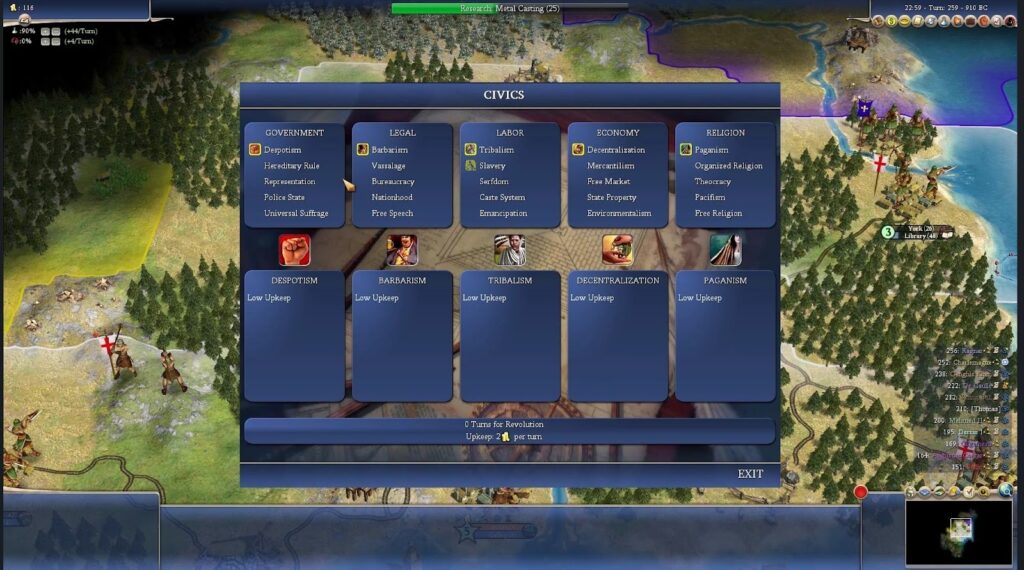
On the other hand, Civilization V brought a new mechanic into the game—Espionage. With this feature, players could deploy spies for various reasons. The mechanic was used to get inside info on opponents, steal tech, and sabotage the infrastructure. It was a surefire way to deal chip damage to enemies without an all-out war. But it was also a risk-reward tactic as Espionage required hefty resources and careful timing because spies could also be caught and neutralized.
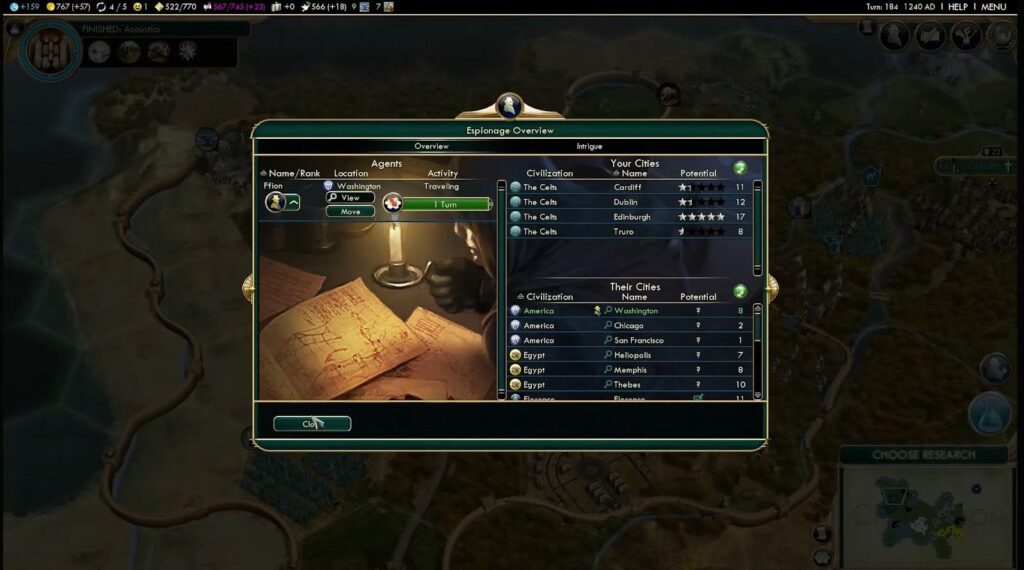
The Cultural Victory mechanic carried Civ VI. Winning through culture meant attracting tourists to your civilization by generating high amounts of tradition and tourism. This shift encouraged players to focus on cultural development and tourism. Who knew soft power could be as dreadful as military might?
These innovations transformed strategic games, promoting deeper, diversified victories beyond conquest. Complex systems that made players consider diplomacy, culture, and covert acts enhanced the genre.
Memorable Leaders and Civilizations
Hearing the word leaders instantly reminds me of Genghis Khan, Cleopatra, and Gandhi. I believe they are the most memorable leaders in the Civilization series, and here’s why.
Genghis Khan can build strong cavalry units faster and more effectively. That’s why he’s a disaster for any enemy within reach. His focus on military conquest was satisfying, and I always played aggressively when leading the Mongols.
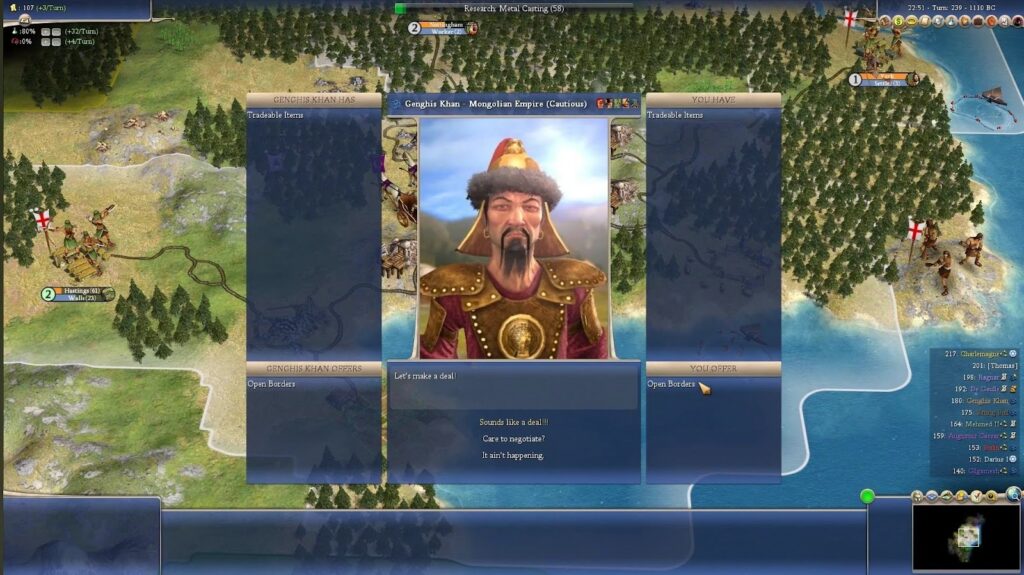
Meanwhile, leaders like Cleopatra of Egypt orchestrated a more diplomatic approach. Her influence in gaining bonus gold from trade routes made her a powerhouse in economic development.
Gandhi’s passive-aggressive nature was a big no in the early game stages. But as the game progressed, he consistently impressed me with his peaceful approach toward everything. It’s like a saint’s job; you win while making everyone happy! Here are some other memorable leaders:
- George Washington – Civ IV
- Saladin – Civ V, VI
- Trajan – Civ VI
- Napoleon Bonaparte – Civ V
- Catherine the Great – Civ IV
- Alexander the Great – Civ IV, V
- Abraham Lincoln – Civ IV, V
- Winston Churchill – Civ VI
- Attila the Hun – Civ V
- Suleiman the Magnificent – Civ V, VI
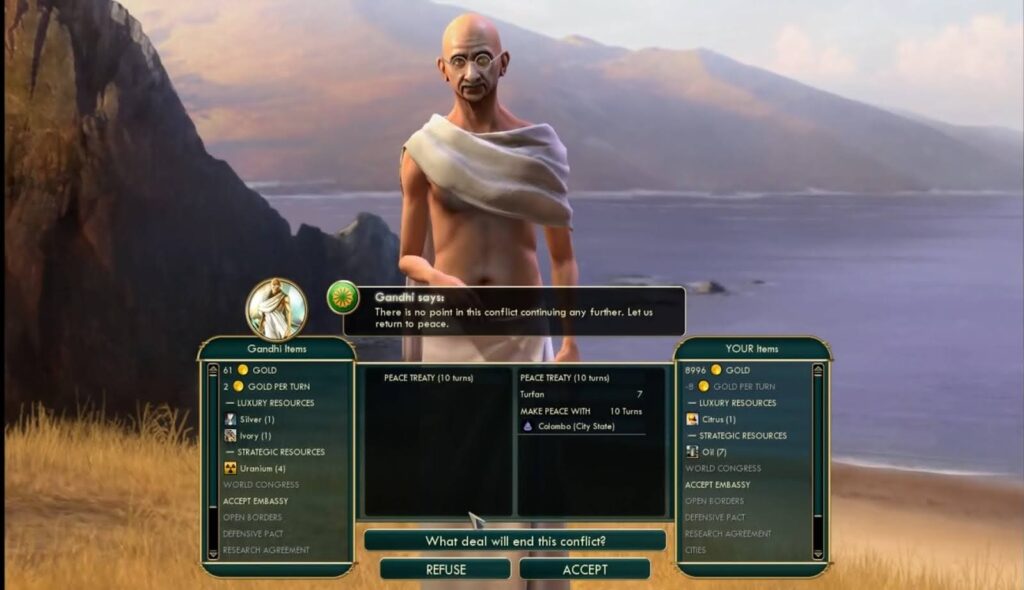
Ultimately, the leaders in the Civilization series bring a distinct approach that influences my strategy. Some leaders encourage aggressive expansion; others may favor diplomacy or economic strength. Each leader adds complexity, strategy, and tactful fun to the game.
Must-Have Expansions and DLCs
The Civilization series is known for its depth; each expansion has added something significant to the gameplay.
In Civ III, Conquests added other Civs and the “World Congress,” changing the diplomatic landscape. Warlords introduced Great Generals in Civilization IV, and Beyond the Sword brought espionage and new victory conditions, enhancing strategy.
Civilization V had two major expansion packs. Gods & Kings introduced religions and spies, adding complexity to diplomacy. Brave New World introduced ideologies and tourism for a cultural victory, making the game’s politics even deeper.
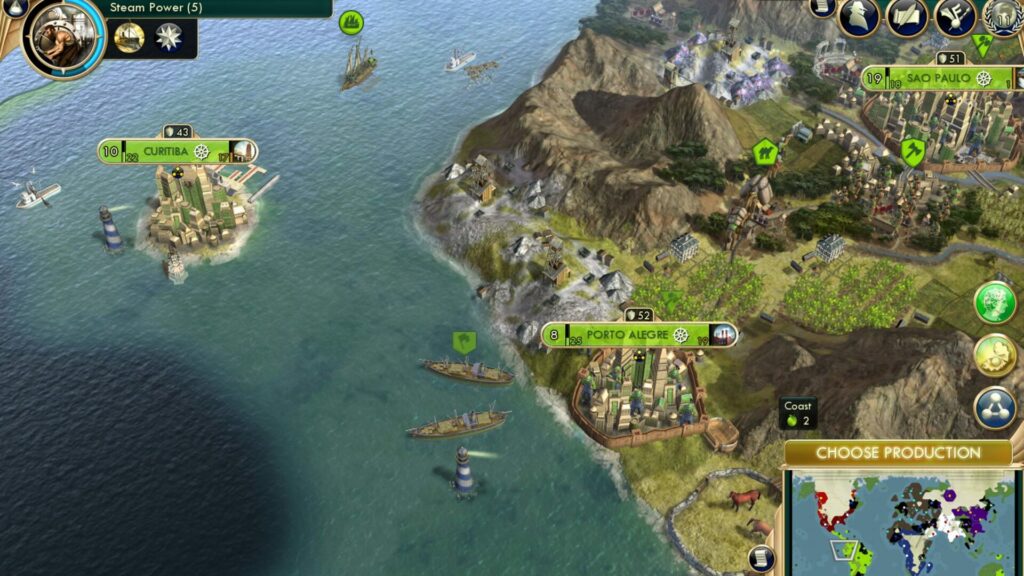
Civ VI has some of the most impactful expansions. Rise and Fall added loyalty mechanics, governors, and Dark and Golden Age, forcing players to manage internal stability alongside external threats. Gathering Storm took things further by introducing climate change, natural disasters, and the World Congress, making environmental sustainability a key factor in empire-building.
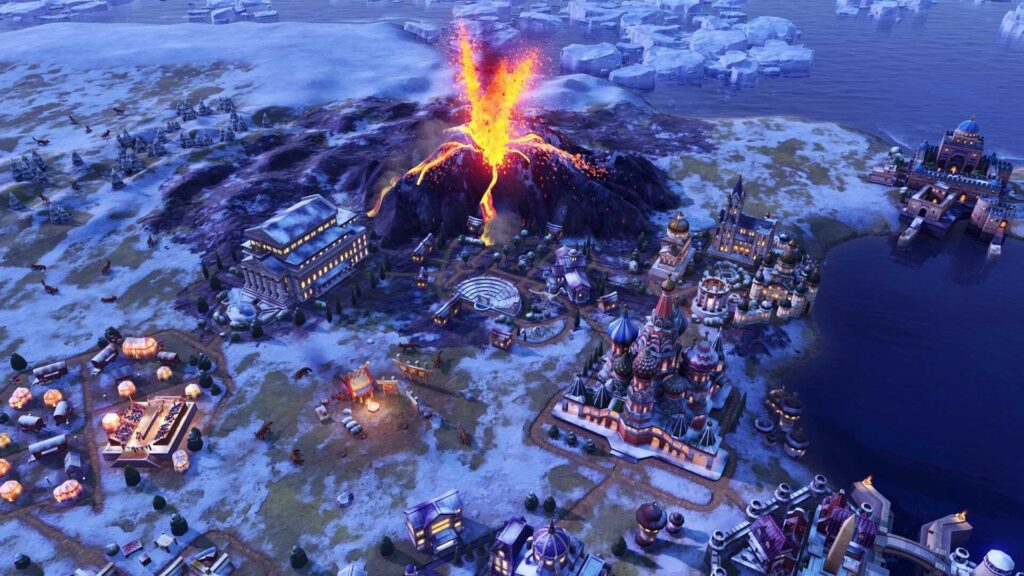
The New Frontier Pass for Civ VI brought regular DLCs, with new civs, leaders, and modes like “Secret Societies” that kept the game fresh.
For the best Civ experience, Gathering Storm and Rise and Fall are must-haves, in my opinion. They add layers of strategy and challenge that transform your play, making each session feel unique.
The Future of Civilization: What Lies Ahead?
The future of Civilization looks exciting, with Civilization 7 right around the corner!
Here’s what we know about Civilization VII. The game will be available on platforms including PC, PS5, PS4, Nintendo Switch, Xbox Series X/S, and Xbox One.
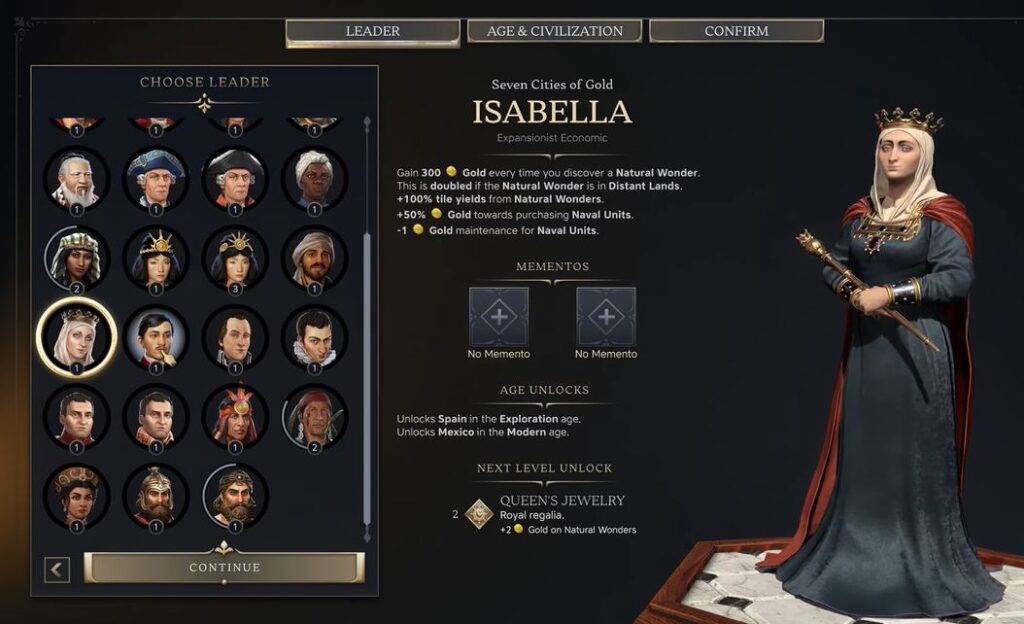
Here’s what I observed about Civ VII so far:
Civilization VII is a fun and polished game with some cool new ideas. The music and sound effects are great, I especially liked the little story moments that pop up – this is a new thing for Civ, and it seems to be a hit! They’re called “narrative events” and add some personality to the game.
Combat and diplomacy have been refined, with the influence system adding intriguing new layers to both warfare and peace. Building your own civilization is still addictive, and of course the game has a lot of potential to get even better with updates.
Overall, Civilization VII will be another amazing title in the genre. The game’s official release will tell more about its actual gameplay features and new additions (excitedly looking forward to it!).
Getting Started: Tips for New Civilization Players
Getting started can feel overwhelming if you’re new to the Civilization series, but don’t worry—it’s all about taking it step by step.
Balance Your Resources: When I first started, I wish someone had told me how important it is to balance your resources. Managing food, production, and gold is a crucial early game. Focusing too much on one can leave you vulnerable in other areas and late game scenarios.
Understanding Core Game Mechanics: The game revolves around building an empire that spans thousands of years, and you can win in many different ways. There are five core victory types:
- Domination
- Science
- Culture
- Religion
- Diplomatic
Early on, I found it easiest to go for a Science or Domination victory. A Science victory is straightforward, focusing on advancing technology. However, Domination is about military conquest, ane it’s harder to maintain peace if you go this route.
Explore As Much As You Can: Exploring is the key! I can’t stress enough how much loss I had to bear in the early game by not sending scouts out immediately. Finding city-state allies or natural wonders can provide significant bonuses.
Don’t be afraid to lose: Last but not the least. Losing is a big part of learning the game; each defeat gives you insights into what works and doesn’t. Civilization is about trial and error, and you’ll get better with every game. So dive in and enjoy the journey!
Advanced Strategies: Mastering Civilization Gameplay
To truly master Civilization, advanced players need to refine different strategies beyond the basics. Here are some advanced tips to keep you afloat:
City Placement and District Synergies: They are crucial. It’s not just about settling near resources but optimizing adjacency bonuses. For example, placing a Theater Square next to a Commercial Hub or Industrial Zone multiplies your output, giving you a major edge in mid-game.
Diplomacy: It’s another area where advanced players shine. It’s about leveraging relationships, not just forming alliances. Increasing pressure on rivals through military buildup, strategic city placements, or diplomatic deals can control the game’s pace. Pro players often form temporary alliances and break them at key moments, throwing rivals off balance and gaining an advantage.
Flexibility in Military Strategy: Flexibility is essential in military strategy. A mix of siege, cavalry, and infantry units ensures you can handle offense and defense. Don’t overcommit to any single unit type. Additionally, timing your wars is critical. Declaring war during an opponent’s policy shift or Dark Age can cripple their progress and give you the upper hand.
Investing in Great People: Investing in Great Engineers and Scientists can fast-track your path to victory. They provide critical boosts, helping you advance much quicker.
Mastering these advanced tactics and optimizing every move separates top-tier players. But remember, “The man at the top of the ladder didn’t just fall there.”
FAQs
How many Civilization games are there?
There are six main games in the Civilization series. The series started with Civilization in 1991. The latest is Civilization VI, which continues to evolve the franchise with expansions and updates.
Which Civilization game is best for beginners?
Civilization VI is the best for beginners. It introduces simpler mechanics, a helpful tutorial, and a more user-friendly interface than older titles, making learning easier for new players.
Do I need to play Civilization games in order?
No, you don’t need to play in order. Each Civilization game is standalone, with its unique mechanics and features. Starting with any title works, though playing earlier ones offers some context.
Can I play Civilization games on consoles?
Yes, Civilization games are available on consoles. Civilization VI is available on PS4, Xbox, and Nintendo Switch. Console versions feature optimized controls and a streamlined interface for a smoother experience.
How long does a typical Civilization game last?
A typical Civilization game lasts 3-6 hours. Game length depends on map size, speed settings, and your strategy. It can stretch to 10+ hours or more with larger maps or higher difficulty.
















